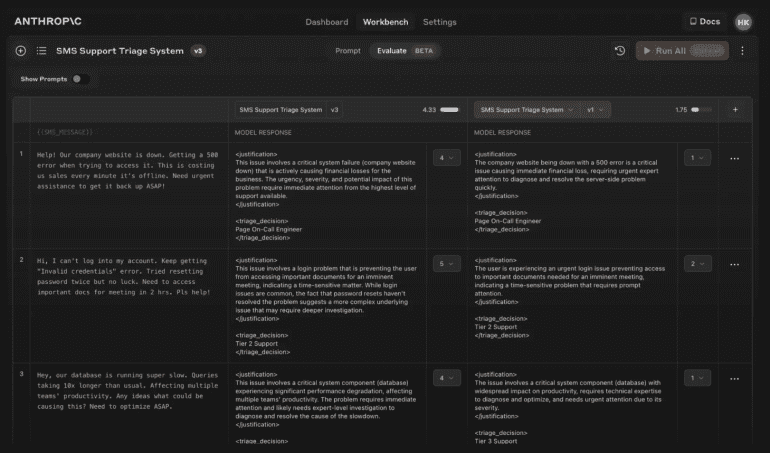- Anthropic has unveiled new tools aimed at automating and optimizing prompt engineering for developers using Claude, their language model.
- The update includes Claude 3.5 Sonnet, facilitating prompt generation, testing, and refinement within Anthropic Console’s Evaluate tab.
- Developers can now fine-tune prompts efficiently using Anthropic’s prompt engineering techniques to improve Claude’s performance on specialized tasks.
- The tools are designed to provide quick feedback and streamline prompt optimization processes, potentially reducing development time and costs.
- CEO Dario Amodei emphasizes the significance of prompt engineering in enabling broader enterprise adoption of generative AI technologies.
Main AI News:
Anthropic has introduced a new suite of tools designed to streamline prompt engineering for developers using its language model, Claude. The update, announced in a recent blog post, includes Claude 3.5 Sonnet, which empowers developers to generate, test, and refine prompts more efficiently. These enhancements aim to optimize inputs and boost the precision of Claude’s responses across specialized tasks.
The features, now accessible via Anthropic Console’s Evaluate tab, mark a significant advancement in AI development capabilities. They enable developers to fine-tune prompts rapidly, leveraging Anthropic’s prompt engineering techniques to achieve superior outcomes. This capability not only simplifies the traditionally complex task of prompt formulation but also enhances the effectiveness of AI applications in diverse operational scenarios.
Anthropic’s ongoing innovation in prompt engineering aligns with its broader mission to support enterprise adoption of generative AI technologies. By facilitating quick adjustments and providing real-time feedback, Anthropic empowers developers to iterate efficiently and enhance the functionality of AI-driven products. This approach promises to save significant time and resources, particularly beneficial for developers navigating the complexities of prompt engineering without extensive prior experience.
CEO Dario Amodei underscored the critical role of prompt engineering in driving widespread adoption of generative AI, highlighting its potential to transform application performance with minimal investment. Anthropic’s latest tools not only cater to seasoned developers but also democratize access to advanced prompt optimization techniques, reinforcing its commitment to advancing AI innovation in enterprise environments.
Conclusion:
Anthropic’s introduction of Claude’s Prompt Playground represents a significant advancement in enhancing AI application efficiency. By automating and simplifying prompt engineering, Anthropic not only aims to improve developer productivity but also accelerates the deployment and optimization of AI-driven solutions in diverse business contexts. This initiative underscores a growing trend towards democratizing advanced AI tools, potentially reshaping market dynamics by making sophisticated AI capabilities more accessible to businesses of all sizes.

